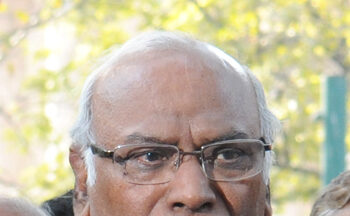A tumultuous scene unfolded in the Jammu and Kashmir Assembly on Monday as members of the National Conference vociferously demanded a debate on the Waqf Bill, which recently received presidential assent. The Speaker’s refusal to entertain the adjournment motion led to a significant uproar, highlighting the contentious nature of the legislation.
The Waqf Bill, introduced by Minority Affairs Minister Kiren Rijiju, proposes substantial changes to the management of waqf properties—Islamic endowments intended for charitable and religious purposes. Key provisions include the inclusion of non-Muslim members in waqf boards and enhanced governmental oversight. Proponents argue that these measures aim to curb corruption and improve transparency within waqf institutions. However, critics contend that the amendments infringe upon the constitutional rights of Muslims and may facilitate the appropriation of historically significant religious properties lacking formal documentation.
The bill’s passage through both houses of Parliament was met with considerable opposition from various quarters. The All India Muslim Personal Law Board has been particularly vocal, alleging that the legislation is crafted to “usurp” waqf properties across the country. AIMPLB spokesperson S.Q.R. Ilyas stated, “All the proposed 44 amendments and their sub-sections were designed to destroy and manipulate the status of the waqf properties.”
In the broader political landscape, opposition parties and several Muslim organizations have united against the bill, viewing it as a politically motivated attempt to weaken minority rights. Concerns have been raised that the inclusion of non-Muslims in waqf boards could undermine the religious autonomy of these institutions. Rajya Sabha member Sanjay Singh criticized a clause in the bill that stipulates only those practicing Islam for at least five years can be a waqif , suggesting that the government might eventually attempt to control lands belonging to other religious communities as well.




 India Opts for Diplomacy Amidst US Tariff Escalation
India Opts for Diplomacy Amidst US Tariff Escalation 